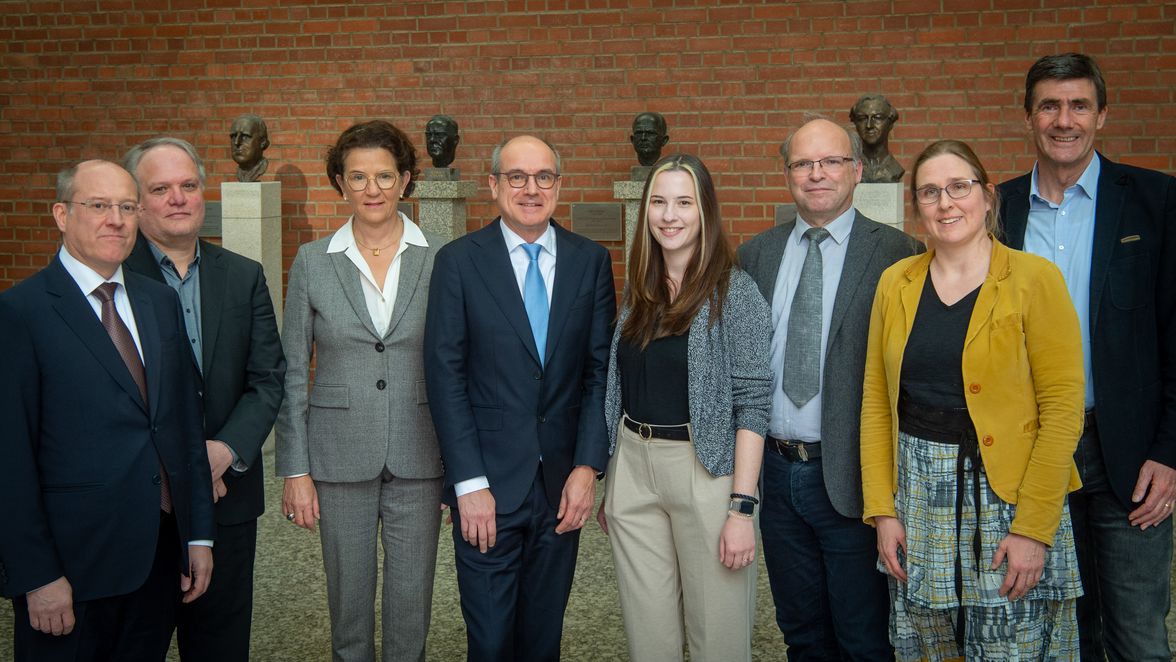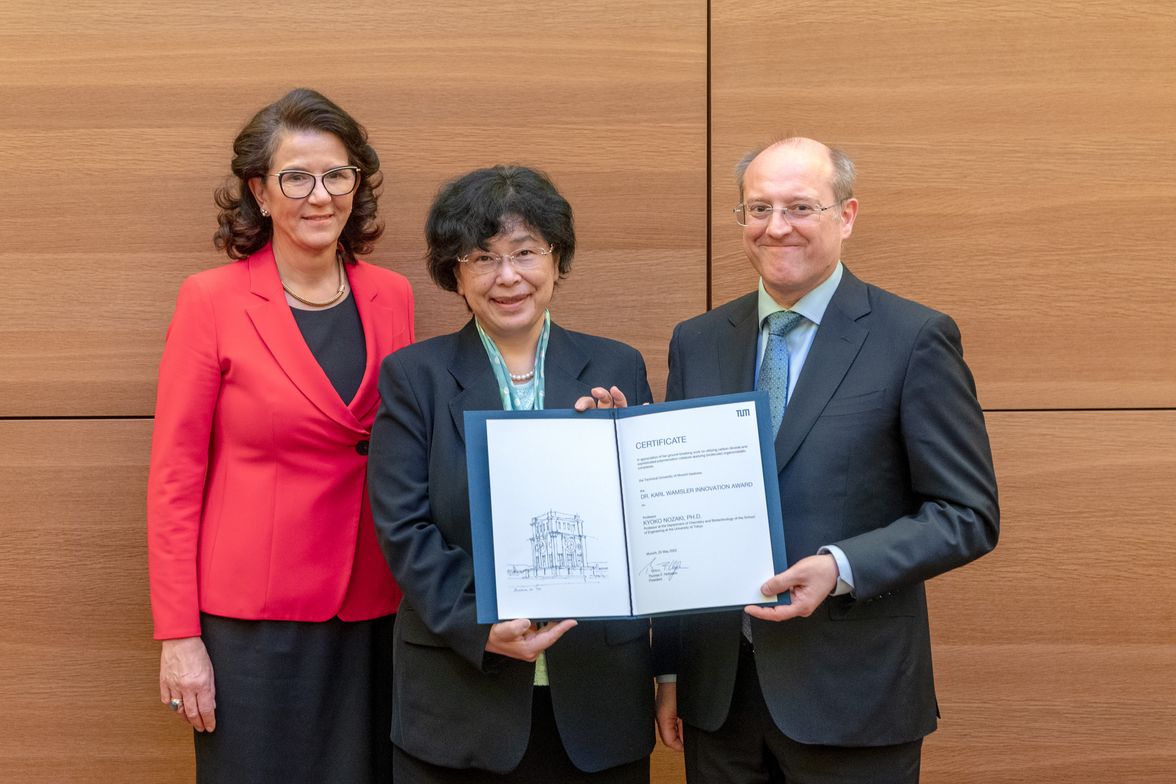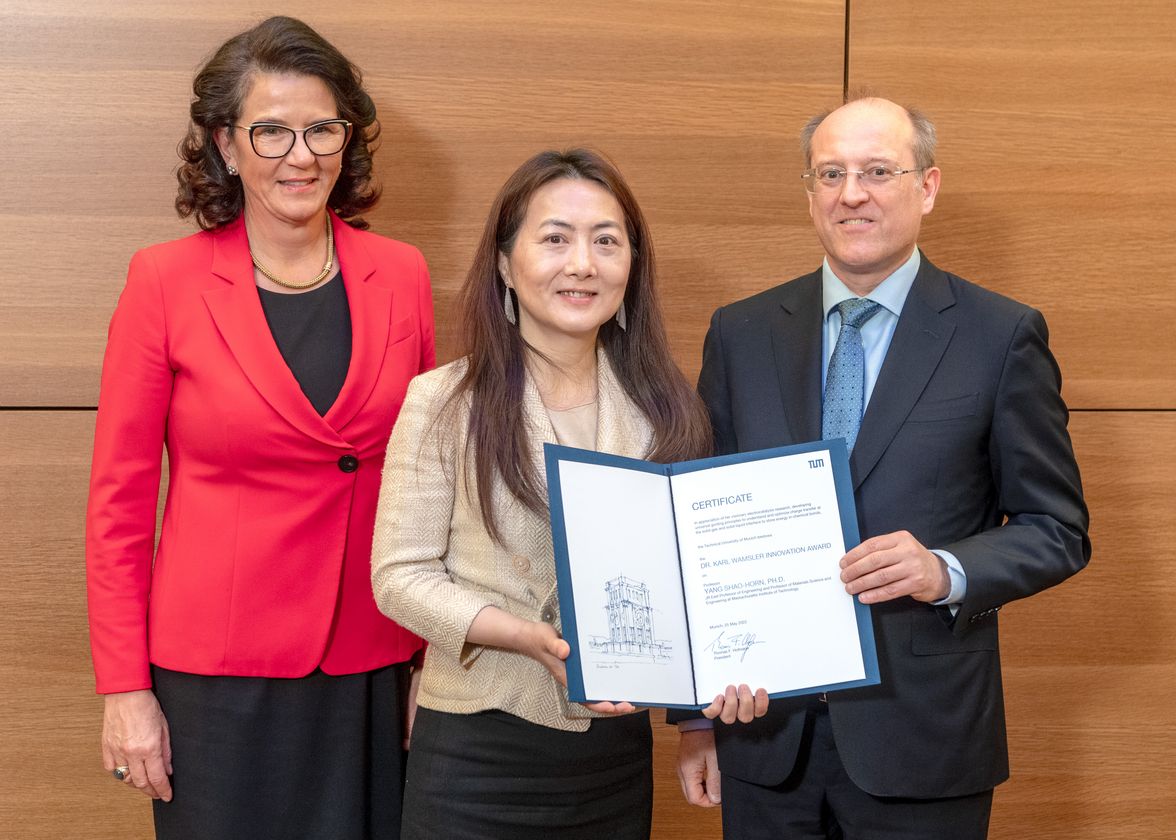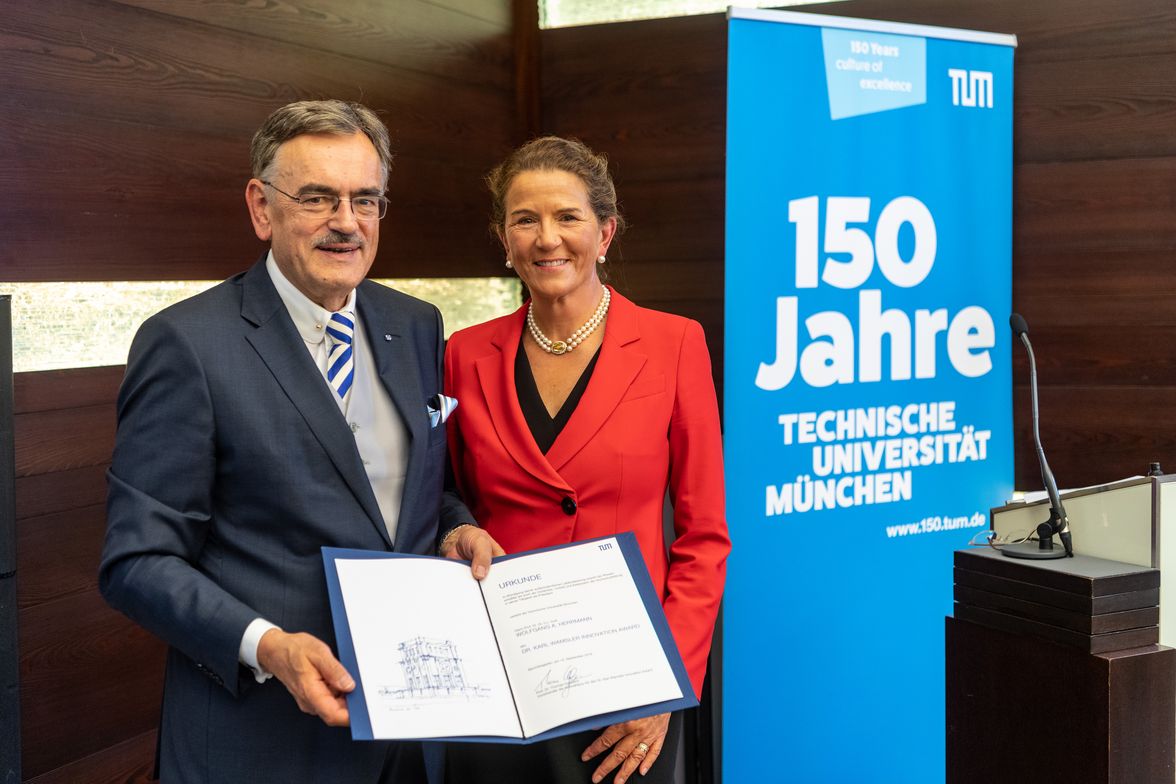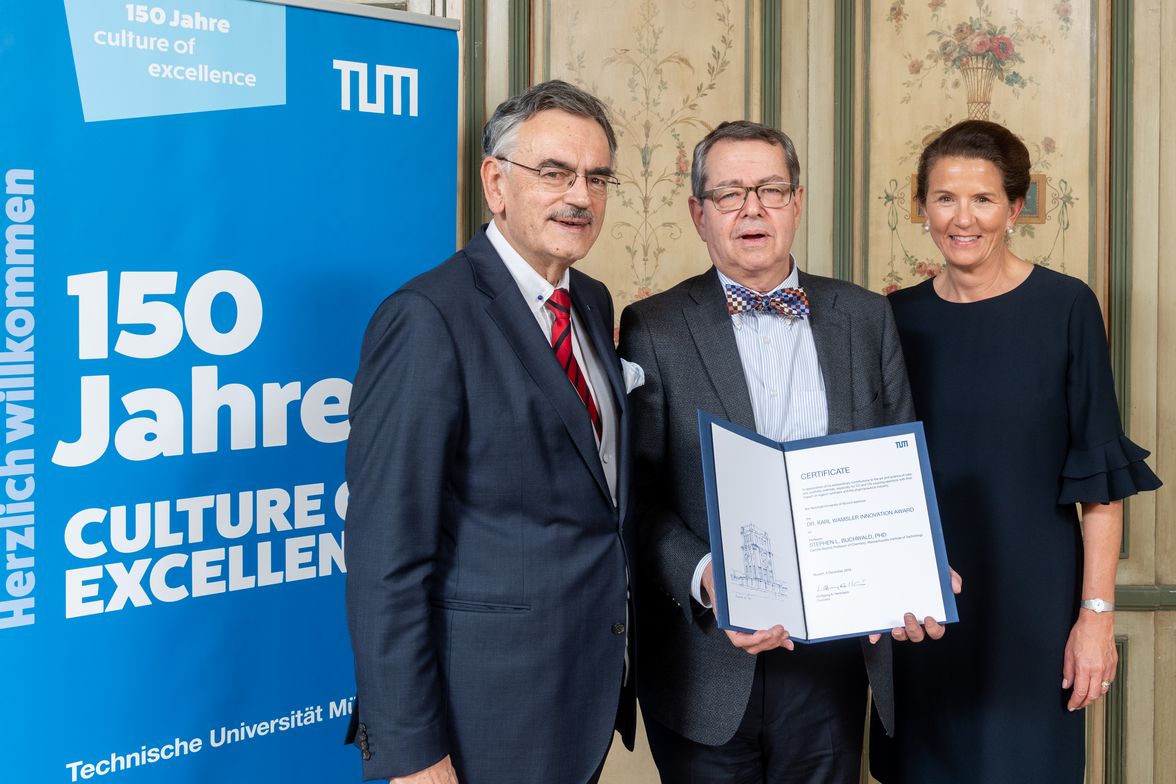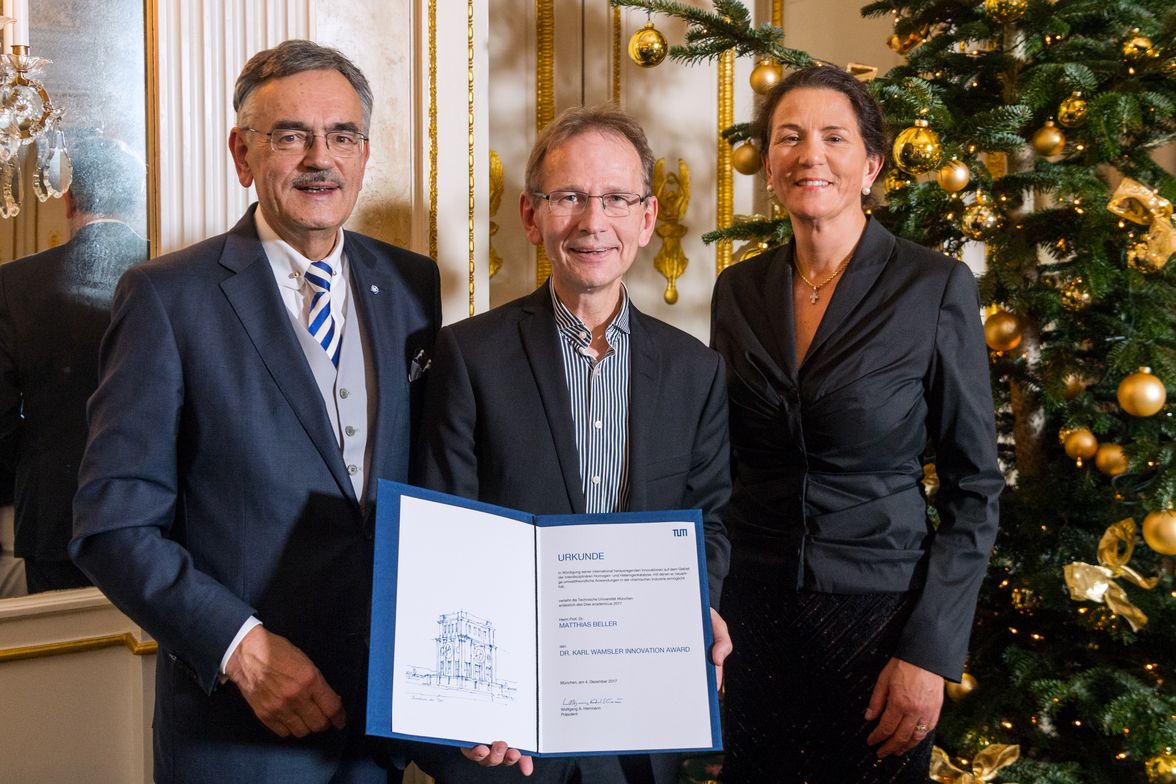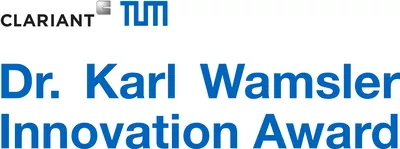
In honorable memory of the distinguished German chemist, Dr. Karl Wamsler, a formative personality of the German chemical industry, Clariant is proud to support catalysis research at TUM and promote excellence in the field of catalysis. Clariant is especially proud to sponsor this award and thereby recognize the world leading researchers and their performance in this essential field of chemistry.
Dr. Karl M. F. Wamsler (1928–2016) studied chemistry and business administration in Munich and Chicago and earned his doctorate in chemistry with magna cum laude in 1955. He first worked for Shell and joined Süd-Chemie in Munich in 1962. In his career there and also as family legacy shareholder, he built up Süd-Chemie from a small regional company into an international corporation, always with an emphasis on innovation, specifically in the area of catalysis. On behalf of his dedication to the TUM University Foundation, TUM awarded Karl Wamsler the rank of Honorary Senator in 2015. Already in 2011 Clariant AG, a sustainability-focused specialty chemistry company based in Pratteln, Switzerland, acquired Süd-Chemie, and in 2017 established the “Dr. Karl Wamsler Innovation Award”.
The award winners:
2024 - Bert M. Weckhuysen

Bert M. Weckhuysen is Distinguished University Professor at Utrecht University. He received the 2024 Dr. Karl Wamsler Innovation Award “for his contributions to visualizing heterogeneous catalysts in operando for the conversion of fossil and renewable feedstocks”.

Veronique van Speybroeck is full professor at Ghent University and director/co-founder of the Center for Molecular Modeling (CMM). She received the 2023 Dr. Karl Wamsler Innovation Award “for her contributions to modeling nanoporous materials for catalysis and simulating complex chemical transformations at operating conditions”.

Matthew J. Gaunt is holder of the Yusuf Hamied 1702 Chair of Chemistry at the University of Cambridge. He received the 2022 Dr. Karl Wamsler Innovation Award “for his contributions to the field of synthetic organic chemistry and homogeneous catalysis, especially visible light-mediated photoredox catalysis and photochemistry”.
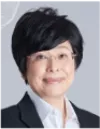
Kyoko Nozaki is a full professor at the University of Tokyo. She received the Dr. Karl Wamsler Innovation Award in 2021 “in recognition of her ground-breaking work on utilizing carbon dioxide and sophisticated polymerization catalysis with organometallic complexes”.

Yang Shao-Horn is W.M. Keck Professor of Energy and Professor of Mechanical Engineering and Materials Science and Engineering at the Massachusetts Institute of Technology. She received the Dr. Karl Wamsler Innovation Award in 2020 „in appreciation of her visionary electrocatalysis research, developing universal guiding principles to understand and optimize charge transfer at the solid-gas and solid-liquid interface to store energy in chemical bonds“.

Wolfgang A. Herrmann has been the President of the Technical University of Munich from 1995 to 2019 and is Professor emeritus of Inorganic Chemistry. He received the Dr. Karl Wamsler Innovation Award in 2019 "in recognition of his extraordinary life's work both as a scientist and as a pioneer, role model and catalyst of higher education in his role as President".
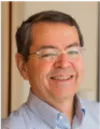
Stephen L. Buchwald is Camille Dreyfus Professor of Chemistry at the Massachusetts Institute of Technology. He received the Dr. Karl Wamsler Innovation Award in 2018 “in appreciation of his extraordinary contributions to the art and science of catalytic synthetic methods, especially for CC- and CN-coupling reactions with their impact on organic synthesis and the pharmaceutical industry”.

Matthias Beller is the Executive Director of the Leibniz Institute for Catalysis at the University of Rostock. He received the Dr. Karl Wamsler Innovation Award in 2017 “in recognition of his internationally outstanding innovations in the field of interdisciplinary homogenous and heterogeneous catalysis, through which he has made possible innovative and environmentally friendly applications in the chemical industry”.
